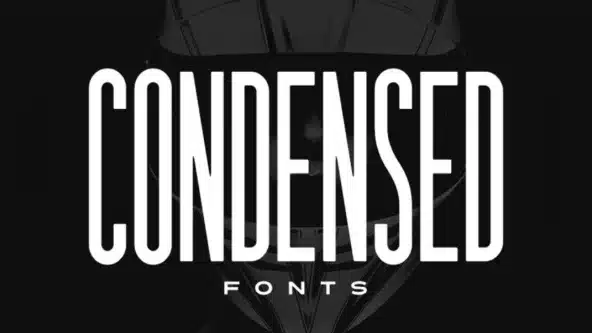Is Book Scanning Legal? What You Need to Know Before Digitizing Books

Top Summary Block (TL/DR)
Is it legal to digitize books? Digital book conversion can be a great way to streamline research, increase accessibility, and preserve knowledge. The legal ramifications of book scanning are explained in this article, along with the distinctions between personal and commercial digitization, what is permitted by copyright law, and how fair use works.
Learn what the public domain contains and when it is necessary to have permission so as to eliminate the most frequent legal mistakes that can be made when scanning books to gain access to digital copies.
In the current digital era, instantaneous, portable, and searchable information access is expected. While there are many situations in which digitization is completely acceptable, there are also many in which copyright infringement becomes a concern.
This article breaks down everything you need to know before digitizing books—so you can scan responsibly, avoid legal pitfalls, and preserve knowledge the right way.
The Rise of Book Digitization
Printed publications like manuals, technical books, and even ancient recordings have great value, but the physical medium is vulnerable. They take up physical space, and they go bad with time, and they are not so easy to search. Copyright is the protection of the original forms of idea in material form, i.e., in book form, textbook, essays, and illustrations. That’s why institutions across the globe are embracing digital book conversion.
Digitization projects are especially popular among:
-
- Academic libraries building searchable archives
- Research teams needing remote access
- Companies that scan records, paperwork, and manuals for convenient access
Fundamentals of Copyright: Who Is the Owner?
You must comprehend copyright in order to determine whether book scanning is permitted or prohibited.
Copyright is the protection of the original forms of ideas in material form, i.e., in book form, textbooks, essays, and illustrations. Copyright is automatically granted to a piece of work (in most nations, including the US) upon its writing or publication.
What is the duration of copyright?
In the United States, it is generally so:
- 95 years after publication (in publications made by authors earlier than 1978 and corporate authorship);
- The life of the author and 70 years after (in the case of individual authors).
None other than the holder of copyright, which is normally the publisher or author, can give its consent to copy, distribute, or translate to digital copy.
When Is It Legal to Scanning Books?
There are clear scenarios where book scanning is typically lawful. These include:
Public Domain Works
It is free to digitize books whose copyright has expired or was never protected. This category frequently includes government publications or classic works of literature like Moby Dick.
Books You Wrote
You can digitize the book for any purpose, whether personal or professional, as long as you wrote it and have the rights.
Orphaned Works or Out-of-Print Works
There are books whose copyright owner is not traceable and unavailable. Although scanning of these is often given the pass in the name of preservation or education, it is illegal unless a license is granted.
Before using a book scanning service, make sure they assist in confirming the content’s legal status.
Fair Use Described: A Legally Complicated Matter
The copyright law of the United States contains a clause named fair use, limiting unpermitted uses of copyrighted works under some conditions.
The four key elements of fair use are:
- What is the purpose and nature of the use? Is it transformational, uncommercial, or educative?
- Are the contents of the copyrighted work imaginative or documentary?
- How many pages is the book—a few or all of them?
- Impact on the market: Will this lower the book’s sales price?
If you’re scanning passages for use in the classroom, scholarly commentary, or criticism, fair use may be applicable. Even for nonprofit organizations, scanning and disseminating entire books can still present legal issues.
You can usually scan a book if you have a physical copy for your own use, like using it on a tablet or making a digital backup. This is covered by the format-shifting principle.
The fact that even nonprofit sharing can violate rights surprises a lot of well-meaning users. Before distributing digital copies, always give it careful thought.
Specific Instructions for Educational Institutions and Libraries
The legality of libraries and archives is provided with exceptions according to the 108 Section of the US Copyright Act, which allows them to make copies of copyrighted material in order to replace or preserve it.
- Making copies to replace misplaced, stolen, or deteriorating items
- limited digitization of interlibrary loans
- Archiving endangered materials that have been lost (no longer exist)
These are, however, subject to strict conditions, like the fact that they should not be used commercially and should not have a digital version available to purchase.
7. Commercial Scanning: Greater Danger, Greater Expectations
Extra caution is required when digitizing books for profit, whether as a paid service or as a component of a product offering. Reproducing copyrighted works without the required license may lead to legal action.
Notable court cases:
- Millions of books were scanned by Google Books for indexing purposes. Because the use was transformative and non-commercial, courts decided it to be fair use.
- After years of litigation, the digital repository HathiTrust was also found to be subject to fair use.
Securing licensing agreements or limiting services to customer-owned and public domain content is essential if your company sells book scanning services.
Scanning Laws Worldwide
Countries have very different copyright laws. Due to stricter regulations, what is deemed fair use in the US might not be permitted in the EU.
Even personal-format shifting is prohibited in some nations unless specifically allowed by law. Commercial uses are still strictly regulated, despite exceptions for research and preservation brought about by the European Union’s Digital Single Market Directive.
Always get local copyright advice before beginning an international book digitizing service to prevent expensive blunders.
How to Conduct Responsible Scanning
Planning and due diligence are the first steps in responsible scanning, regardless of your role—librarian, academic, or business owner.
Best practices:
- Use tools that respect the integrity of rare or fragile books
- Focus on Creative Commons or open-license works when possible
- Avoid scanning entire books unless legally allowed
- Always document the source and status of the material
- When in doubt, seek advice from a licensing organization or copyright lawyer
You can guarantee appropriate handling, file formatting, and metadata tagging while adhering to legal requirements by collaborating with a compliant book scanning services provider.
Conclusion: Scan with Care
Access, preservation, searchability, and efficiency are just a few of the enormous advantages that come with a book scanning service. But in exchange for such merits, there are legal responsibilities.
It is essential, therefore, to understand your rights, what kind of material you are dealing with, and your intentions in using the material you scan.

Why Retail Software Testing is Critical for Effective E-commerce Development?

How Sales Teams Increased Productivity with Parallel Dialers

Curtain Dry Cleaning and Leather Sofa Cleaning – Reliable Care by Duo Nini

SEO for ChatGPT: Boost Your Brand in AI Responses

LLM-Native Software Architecture: Designing Products for Agents, Not Just Humans

Bespoke in the South: How Charlotte’s Elite Are Personalizing Their Rolls-Royce

How Condensed Fonts Improve Packaging and Label Design

What to Expect During Your First NDIS Support Visit








